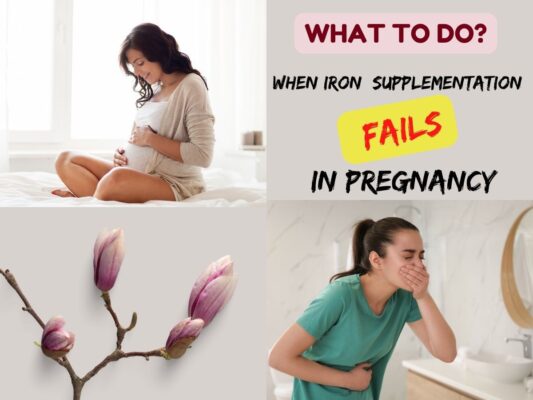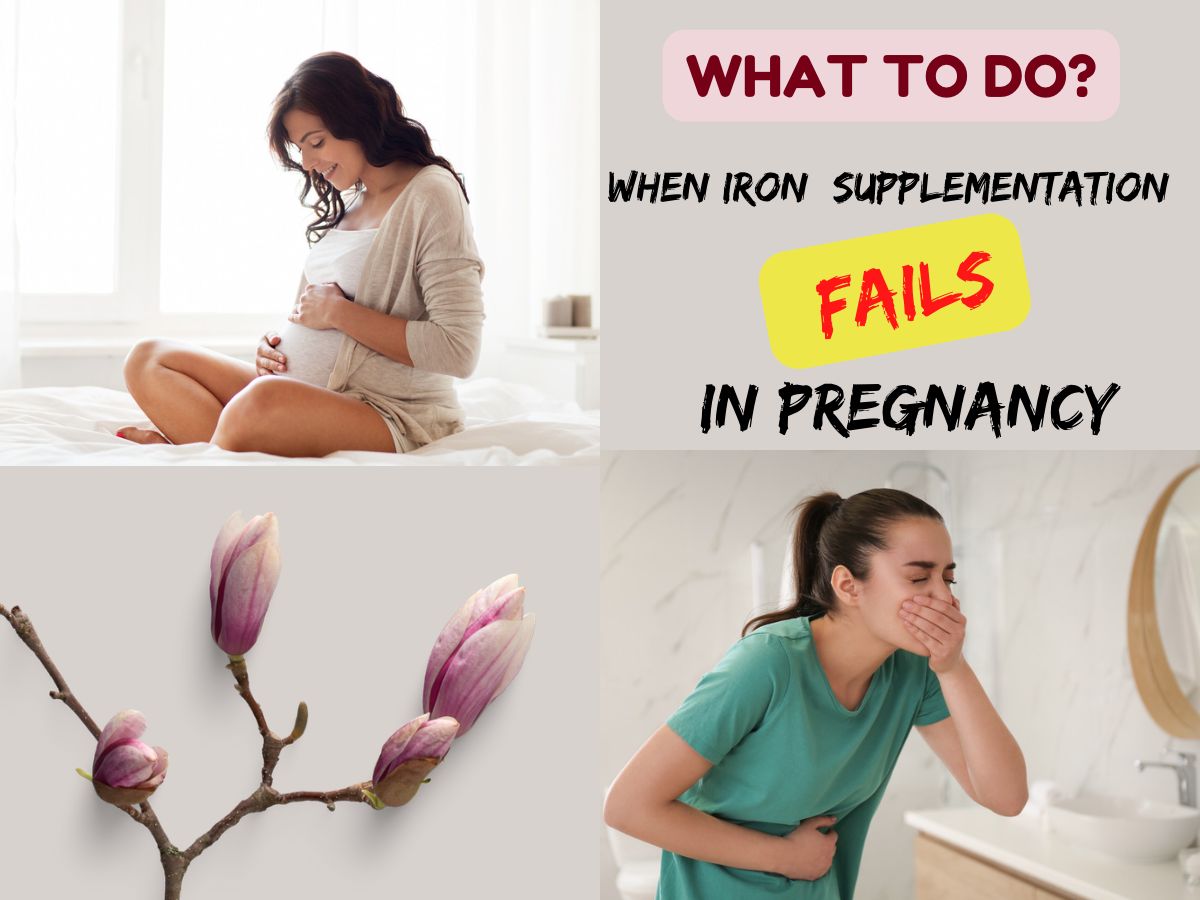Iron Supplementation Treatments: A Review of Failures
Welcome to the world of iron supplementation treatments – a vital approach to combat iron deficiency and promote overall health! Iron is an essential mineral that plays a crucial role in carrying oxygen throughout your body and maintaining various bodily functions. When iron levels become insufficient, it can lead to iron deficiency anemia, resulting in fatigue, weakness, and other health issues.
In this informative guide, we will explore the significance of iron in your body, the causes and symptoms of iron deficiency, and the importance of seeking proper diagnosis and treatment. Iron supplementation treatments, in the form of iron pills, syrups, or intravenous infusions, are commonly prescribed by healthcare professionals to replenish iron stores and restore healthy hemoglobin levels.
Join us as we delve into the various types of iron supplements available, the recommended dosages, and important considerations for their effective and safe usage. Whether you’re managing anemia or seeking to optimize your iron intake, understanding iron supplementation treatments can be a pivotal step towards revitalizing your energy, improving your well-being, and maintaining a balanced and active lifestyle.
If there is not enough of Iron in the body, oxygen from the lungs is unable to reach all the organs of the body, leading to symptoms like tiredness or fatigue. In fact a good quantity of Iron in the blood is extremely essential to maintain a strong immunity along with good physical & mental performance. Iron deficiency or lack of Iron in the human body is known as ‘ANEMIA’.
Characteristics of Anaemia:
A person having iron deficiency is known as ‘Anaemic’. Iron deficiency is recognized with symptoms like: Pale skin, fatigue, weakness, shortness of breath, hair loss, loss of proper focus, heart palpitations, dizziness & poor mental & physical performance.
One way to confirm Anaemia or Iron deficiency is via a blood test also known as Hb or Haemoglobin level test. The levels of Iron have different range for men & women. The healthy range for haemoglobin in humans is as follows:
For Men: 13.2 to 16.6 grams per decilitre.
For Women: 11.6 to 15 grams per decilitre.
Anything less than these levels needs to be supplemented with Iron externally. The Iron requirement in women goes up significantly in women during pregnancy to maintain a healthy pregnancy & a well-developed foetus or during menstruation due to blood loss.
Preventing Iron Deficiency through Iron supplementation:
Regular healthy & nutritious food is the best way of maintaining healthy Iron levels. Food products like, meats, poultry, sea food, eggs are very rich sources for Iron supplementation. In addition to this, vegetarian options like Spinach, Broccoli, kidney beans, chickpeas, dry fruits, cereals, soy are also great sources of Iron for humans.
However, unlike regular perception, milk or dairy products like milk, cheese, oils, ghee etc cannot supplement iron in the body & are very poor sources for Iron.
Reason For Iron Deficiency:
Poor nutrition or malnutrition are believed to be the key reason for Iron Deficiency or Anaemia. The condition of Anaemia in India is very bad with over 50% Indian suffering from Anaemia. The number of women & children who are Anaemic is very high. Women are especially the worst impacted with anaemia. The Iron requirement in women goes up significantly during pregnancy, lactation & during the menstruation period. Deficiency of Iron leads to a poorly developed foetus along with various other complications both short term & long term for both the mother & her child.
While there are several ongoing programs to tide over the extreme condition of Anaemia in India via the government, however the best is not good enough with a long way still to go.

Present Treatment Of Iron Deficiency:
Iron deficiency is generally treated with Capsules or Tablets of Iron. Several products are available in the market at difference price points with minor differences, with once product claiming to be better than the other.
However, despite the availability of so many products, one of the major problems with Iron supplements is tolerance. One of the major problems with consuming Iron with most women especially during pregnancy are as follows:
- Constipation
- Nausea,
- Abdominal pain,
- Vomiting,
- Upset stomach,
- Large amounts of iron might also cause more serious effects, including inflammation of the stomach lining and ulcers.
To sum it up tolerance of Iron by the body is a major drawback of most Iron products. Therefore, most patients are unable to continue the treatment long term & stop the therapy in between. This inability to complete the treatment of iron deficiency leads to several long-term problems.
The inability of most people to consume present therapies is therefore a major drawback to continue long term treatment of Anaemia.
If you know someone in your circle who has had to consume Iron Tablets or capsules, he or she will surely confirm the above limitations & problems in compliance.
The key question now is what to do & how to handle this issue related to long term compliance & tolerance.
Nature Has The Answer To Every Problem:
Most people are aware that Spinach (Paalak) is a very rich source of Iron & is generally recommended to supplement iron. How would it be if you got to know of a wonder health supplement which has 8 times more Iron than Spinach & is yet easier to digest. Not only this, it is also loaded with several other micro & macro nutrients, all the essential B-Vitamins, Omega-3 & 6, Folic Acid, Calcium, Zinc, Biotin in good quantities, besides being a great source of Vegan Protein. Not only this, but it is also well tolerated by the human body & does not have any of the side effects that Iron pills or capsules are notorious for.
Well, let’s end the suspense here. This natural & Vegan supplement is SPIRULINA. A wonder product from the lap of mother nature which is also very safe, economical, easy to use & very well tolerated.
Spirulina is available as Tablets of 500 MG & in Powder form as well. A good quality Powder of Spirulina is tasteless & odourless. This allows it to be easily mixed with your favourite smoothies, shakes, juices, health drinks etc making it fun to consume.
Not only this, Spirulina is also a very safe product to use long term. Spirulina is safe to use even up to 8 GRAMS per day, although the regular normal recommended dose is just 1 GM daily at breakfast.
So, if you’re using Spirulina tablets, you could consume 2 tablets of 500 MG each, 15 minutes before breakfast with water & if you’re using Spirulina Powder, you can consume 1 Tablespoon by mixing it with your favourite smoothies, juices, health drinks, shakes etc.
Suggestion:
If you want to start using Spirulina Tablets or Powder, choose a product which is 100% Organic & Pure besides having all the international certifications to its credit to ensure long term safety without any side effects. Beware of cheap brands which may have problems with purity & may be contaminated.
Revitalize Naturally: Try Organic Spirulina Tablets!
Recommended Dose:
- Organic Spirulina Tablets of 500 MG: 2 Tablets once a day with water, 15 minutes before breakfast is normally recommended. The Dose can be extended up to 4 Tablets daily (2 Tablets morning & evening each) in special requirements.
- Organic Spirulina Powder (100 GM Pack): 1 Tablespoon full of Spirulina Powder mixed with you favourite smoothie/ shakes/ juice/ health drink/ omelette/ eggs/ porridge/ Oat meal/ pan Cakes/ paranthas/ roti/ roll/ health snacks etc as per your liking
Please note, Spirulina is safe up to 8 Grams daily (16 Tablets of 500 MG)
Hope you found the topic interesting & informative.
Stay Healthy, Stay Happy!
Have a wonderful day!
This Article Is Crafted For You With ❤️.

